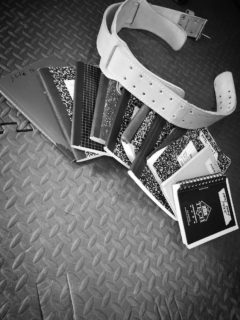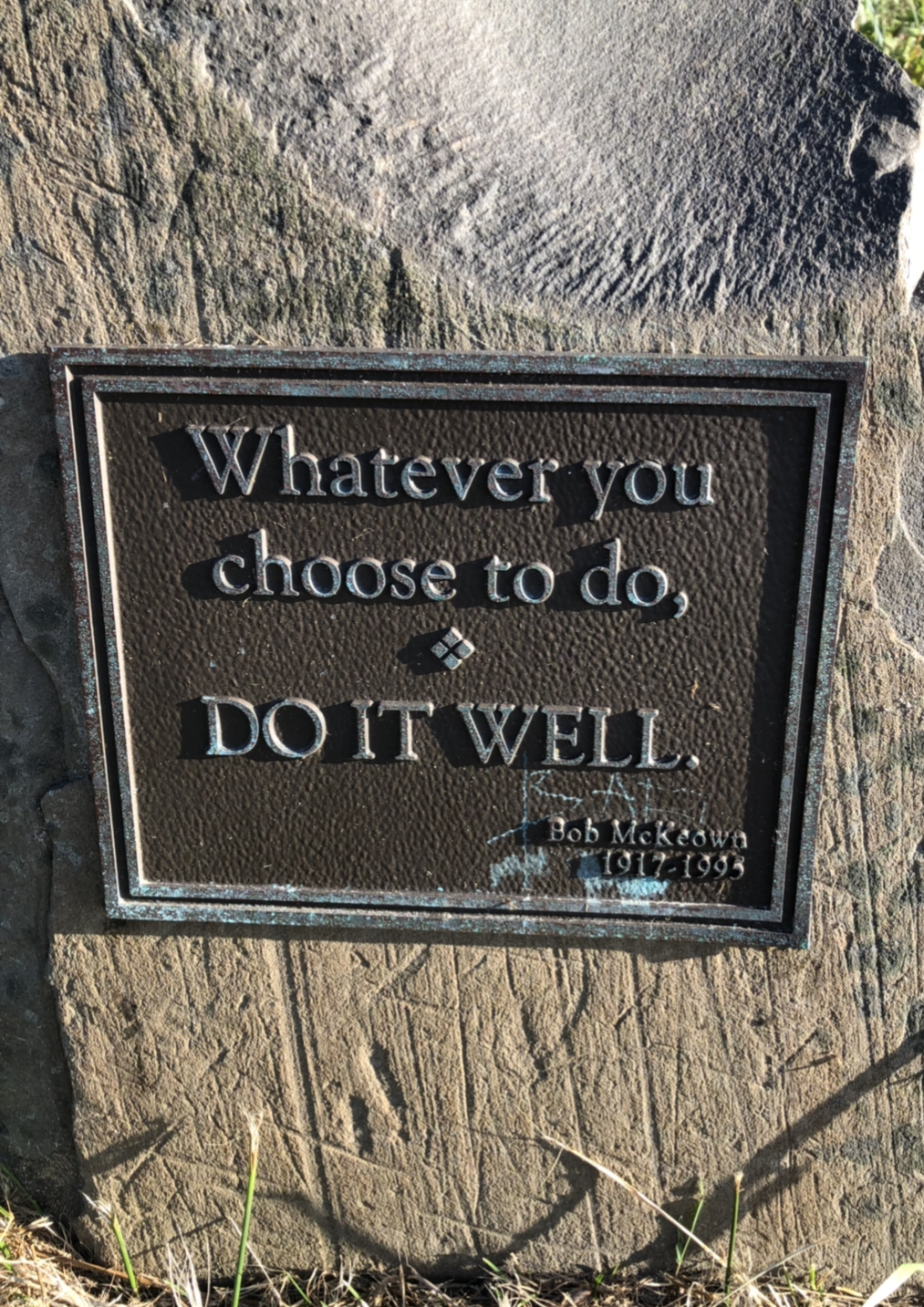“Light is sweet; how pleasant to see a new day dawning.” – Ecclesiastes 11.7
As last year closes, many of us will use the breaking of this new one to try to leave disappointments, failures, unrealized goals, and pain behind. We breach the new almanac with renewed optimism, commitment, and focus. Likely today, we are all-in for a new beginning.
While we may start off the New Year fired up with ‘guns-a-blazin’, the reality is that ‘resolution’ will be little more than cliché as a large majority of us will lose focus and fall back into the demotivation, destructive habits, thinking traps, or emotional constipation/diarrhea (each equally unpleasant!) within a few weeks.
So what’s the answer? Heck, I don’t know. If I had a nickel for every time some so-called expert, ‘life-coach’, or fitness guru whose only job is to work out all day told me all I had to do is…[fill in the blank], I’d be rich. Take it from an average-at-best schmo who does have a day job; can’t be in the gym all day and wouldn’t get paid to be even if he could be there all day; isn’t in this for money, fame, or his own talk show; is admittedly simple-minded and really just wants to help. There’s much to learn from other people’s mistakes and life experiences, and I think we can help each other get and stay motivated.
I need plenty of help, myself. If you’ve read my previous articles or checked out the Home, About Beyond Strength, and About the Author links on the website, you’ll understand this is as much about working on myself as it is helping others. I also know from decades of investigating violent crimes, playing & coaching sports, and serving in the military that success is a team sport. In fact, I have an entire speech queued at any given time on the importance of teamwork. I’ll spare you that narrative here, but as someone who’s about as messed up and needy as anyone out there, I’m confident we can help each other get beyond some things, get over ourselves, and get on with our lives in the New Year.
Physical wellness:
Be consistent, no matter your current level of physical fitness. If you need to start somewhere, start small. Build your consistency by creating a habit. If you’re just getting started or restarted, commit to just walking 15-20 minutes two or three times a week. Treadmill, indoors, or outdoors are all fine. Walk at a pace that is more than lollygagging but less than a jog. In other words, maintain a pace that requires some effort and elevates your heart rate a bit. On a treadmill, I expect on average that’s somewhere between 2.5 and 4 mph. As you begin to feel better, healthier, and more energetic, add time or distance. Stretching and yoga are also great ways to get more active.
If you are already well-along or more advanced physically, renew your commitment…and stick to it. I have found success getting up 45 minutes earlier than normal and knocking it out in the morning. It’s too easy to get distracted or exhausted after a long day and end up blowing it off.
For ideas on fitness training, the internet is plentiful. There’s a great article on the Air Force Marathon website about slowing down to avoid strain and build your endurance engine. Or feel free to visit the Fitness & Workouts link on my website for ideas, read my previous article On Fitness, or email me.
Emotional/Spiritual wellness:
Again, be consistent. Avoid the desire to be constantly ‘plugged-in’. Rest, quiet your mind, take walks in nature, laugh, pray, read, forgive (others & yourself). For some book ideas, see my recommended reading list.

Vocational wellness:
Commit to doing your best every day. That doesn’t include comparing yourself to others, gossiping about coworkers, participating in (or creating) an office drama club. It simply means ending each day confident that you gave your best effort. You don’t ever have to be the most highly educated or talented person to be happy, contribute, or make a difference. Here’s a list one of my good friends and mentors shared during a 2016 command senior enlisted conference. I’ve seen other variations of it, and I’ve added a few points of my own.
Things that require zero talent:
Being on time; work ethic; effort; energy; passion; coachability; being prepared; doing more than expected; gratitude; attitude; respect; compassion.
My goals this year include what’s above, as well as reaching more people, hearing from more people, loving more people, helping more people. I hope you have a plan for the New Year, as well. And that it includes making yourself and the world a little better each day.
“A compassionate man does not stand detached from the sufferings of others. Rather, he steps into the world of the hurting and feels the pain and anguish of the one suffering.” – David Jeremiah
Get Strong. Be Strong. Stay Strong.
Happy New Year!



















